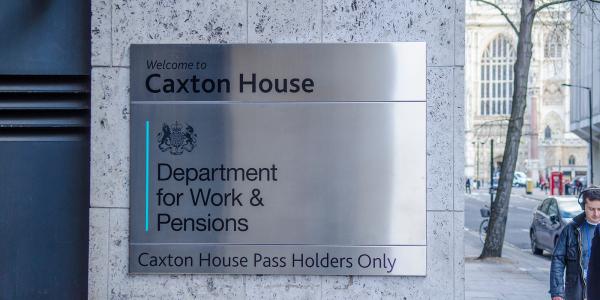UK state pension if you have lived abroad
On this page, we explain various issues that you might come across in relation to the UK state pension if you have lived or worked abroad. If you think you are eligible for a state pension from another country, you should contact the pension authority in the relevant country.

Content on this page:
Qualifying years
See our page National insurance and the state pension for general information about how your UK National Insurance record affects your UK state pension entitlement.
Under the rules which apply from April 2016, 35 ‘qualifying years’ of National Insurance contributions (NIC) would get you the full amount of the UK state pension. You should be able to get a pro-rata amount provided you have at least 10 qualifying years.
However, if you have any qualifying years prior to April 2016, then under transitional rules the total number of qualifying years required to get a full new state pension may be fewer than 35. You can check the number of years you require via your personal tax account.
If you have less than 10 years’ UK NIC, you may be able to use your overseas social security contributions to make up the 10 qualifying years needed to get any amount of UK state pension. This is most likely if you have lived or worked in the European Economic Area (EEA), Switzerland or certain countries that have a social security agreement with the UK.
For more information and an example of how this works, see GOV.UK.
Retiring abroad
If you are eligible for the UK state pension, then it can be paid to you in a country outside the UK.
If you are outside the UK when you reach the age at which you can start to claim the UK state pension, then you may have to apply for your UK state pension to the pension authority in the country you are living in at the time, rather than to the UK pension authorities.
This will depend on whether you have worked in the country you have retired to.
See below for information on how to claim in this situation.
If you have also made social security contributions in another country
If you have made social security contributions in more than one country, this may help you qualify for a UK state pension, or a better one. It may also affect how your UK state pension is worked out and paid.
The rules differ depending on whether you have made contributions in another EEA country, a country with which the UK has a social security contributions agreement, or a country that does not fall into either of these categories.
EEA countries
If you have paid social security contributions in another EEA country as well as the UK, then the UK will look at the contributions you have made under its own scheme to work out how much state pension to pay you.
In addition, if you are an EEA citizen and you have paid some UK NIC prior to 31 December 2020), then under the terms of the UK’s withdrawal agreement from the EU, the UK should look at any contributions you have made in other EEA countries, which may help you qualify for a UK state pension or possibly a higher state pension. This is known as the ‘aggregation principle’.
The ‘aggregation principle’ also applies under the terms of the new UK-EU protocol on social security co-ordination until at least 2035.
There are two methods that the UK can use to work out how much to pay you – Method A and Method B. We demonstrate how this works in the example below.
Bilateral agreement countries
Similar arrangements as above usually exist with countries with which the UK has a social security contributions agreement.
If you have paid social security contributions in a country that is not within the EEA, you should check whether the country has a social security contributions agreement with the UK. You can check by looking at the information on GOV.UK.
Non-agreement countries
If you do not fall within the terms of the UK’s withdrawal agreement from the EU, nor the new UK-EU protocol on social security co-ordination, and you have paid social security contributions in a country that does not have a social security contributions agreement with the UK, you should contact the International Pension Centre for more information.
You can find the contact details on GOV.UK.
Brexit
The UK left the European Union on 31 January 2020. Until 31 December 2020, EU law continued to apply in the UK. This includes rules on co-ordination on social security. Therefore, if you reached UK state pension age prior to 31 December 2020, Brexit will have no impact on your eligibility for a UK state pension.
EEA citizens who have paid some UK NIC prior to the end of the transition period should still be able to access the ‘aggregation principle’ under the UK’s withdrawal agreement from the EU. This means that if such an individual has (or will have) at least 10 years of contributions across the UK and EEA member states (or Switzerland) then they will be eligible for some UK state pension based on actual years of contributions in the UK.
If you come to the UK for the first time after 31 December 2020, then you should still be able to benefit from the ‘aggregation’ principle under the new UK-EU protocol on social security coordination for at least until the end of 2035.
If you have paid UK NIC, we recommend that you obtain a statement of NIC you have paid in the UK and keep this in your records. You can access this through your personal tax account.
You can find more information on this in guidance published by the EU. A detailed overview with links to further guidance can also be found in this House of Commons Library paper.
How to claim
If you are eligible for the UK state pension, you do not get it automatically when you reach state pension age – you have to claim it.
You should receive a letter four months before you reach state pension age, telling you what to do. If you have not received the letter two months before you reach state pension age, you should do the following depending on where you live:
Claiming from inside England, Scotland or Wales
Telephone the state pension claim line. You can find the contact details on GOV.UK.
Claiming from inside Northern Ireland
Telephone the Northern Ireland Pension Centre. You can find the details on nidirect.
Claiming from outside the UK: EEA countries
You can find out which countries are in the EEA by looking at our page EU and EEA countries.
- If you have worked in the country you are now living in, you should make your claim for your UK state pension through the pension institution in the country you are living in. You should contact that institution for details of what you need to do, if you have not already done so.
- If you have not worked in the country you are living in then you should claim your UK state pension direct from the International Pension Centre, unless you have worked in another EEA country since leaving the UK, in which case you should make your claim through the last institution you were insured with.
If you start a UK state pension claim in the EEA country you live in, that country will pass details of your claim to the UK and any other countries where you have been insured.
You can find the contact details for the International Pension Centre on GOV.UK.
Note that you do not need your National Insurance number to make your claim as the International Pension Centre can trace that for you.
A claim for a UK state pension to the International Pension Centre can be made by post or telephone.
If applying by post, you will need a completed form IPC BR1. The form needs to be downloaded, printed, completed and then sent by post to the address on the form. You can also ask the International Pension Centre to send you a copy of the form. You cannot email back the completed form – it must be posted.
Alternatively, you can make the claim by telephone without having to complete the form. After dialling the helpline number, you should select Option 3.
Claiming from outside the UK: non-EEA countries
Contact the International Pension Centre. You can find the details on GOV.UK.
UK tax
The state pension is taxable income in the UK. Whether or not you have to pay UK tax on your state pension depends on how much taxable income you have and whether you are UK resident or not UK resident for tax purposes. The state pension is paid gross (without deduction of tax).
For more information, see our page UK tax for non-UK residents on UK income and gains.
For information on increases to the UK state pension while living overseas, see our page Retiring abroad.
State pensions from other countries
Each country has its own rules on when you can start to receive a state pension and how many qualifying years of social security contributions you need in order to be eligible. If you want to know about your own pension rights in another country, you should ask the authorities who run the pension scheme in that country.
When you claim your UK state pension, you should normally tell the pension authority about any periods when you have made social security contributions in another country.
Just as the UK takes into consideration social security contributions made in other countries, other countries may take into consideration the contributions you have made in the UK. This may mean you find yourself in a situation like Charlotte’s in the example below, where you get a state pension paid to you by different countries.
You should be aware that if you receive a foreign state pension while you are living in the UK, this may be taxable in the UK. See our page UK tax on overseas pensions.
You can find more information about the taxation of foreign income in the UK and double taxation on our Double taxation pages.
The following example demonstrates the EU ‘aggregation principle’, which is part of co-ordinated EEA rules on social security applicable until 31 December 2020. For EEA citizens who have paid UK NIC prior to 31 December 2020, the aggregation principle can continue to apply when claiming the UK state pension, under the terms of the UK’s withdrawal agreement with the EU.
The aggregation principle also applies for individuals within scope of the new UK-EU protocol on social security coordination, until at least the end of 2035. For EEA citizens from non-EU countries who have not paid UK NIC before 31 December 2020 see GOV.UK.
Other state benefits
There are lots of state benefits in the UK that depend on you having paid a certain amount of NIC, not just the state pension. These are called ‘contributory' or 'contribution-based' benefits.
Like the UK state pension, it may be possible for your previous periods of insurance, work or residence in other countries to be taken into account when you claim other UK state benefits. By ‘other’ benefits we mean things like sickness, maternity and equivalent paternity benefits, invalidity benefits, survivors’ benefits and death grants, unemployment benefits, family benefits and so on.
It is difficult to say with any certainty whether a particular benefit will be covered by rules similar to those for the state pension, as it depends on the agreement between the UK and the other country or countries involved. You should note that not all countries have agreements with the UK allowing such benefits to be claimed.
You can find some general information about the rules for EU countries from the European Commission.
You can find some general information about the rules for certain benefits for both EEA and other countries on GOV.UK.
You will probably need to contact the authorities for information on your particular case. You can find contact details from the European Commission.



